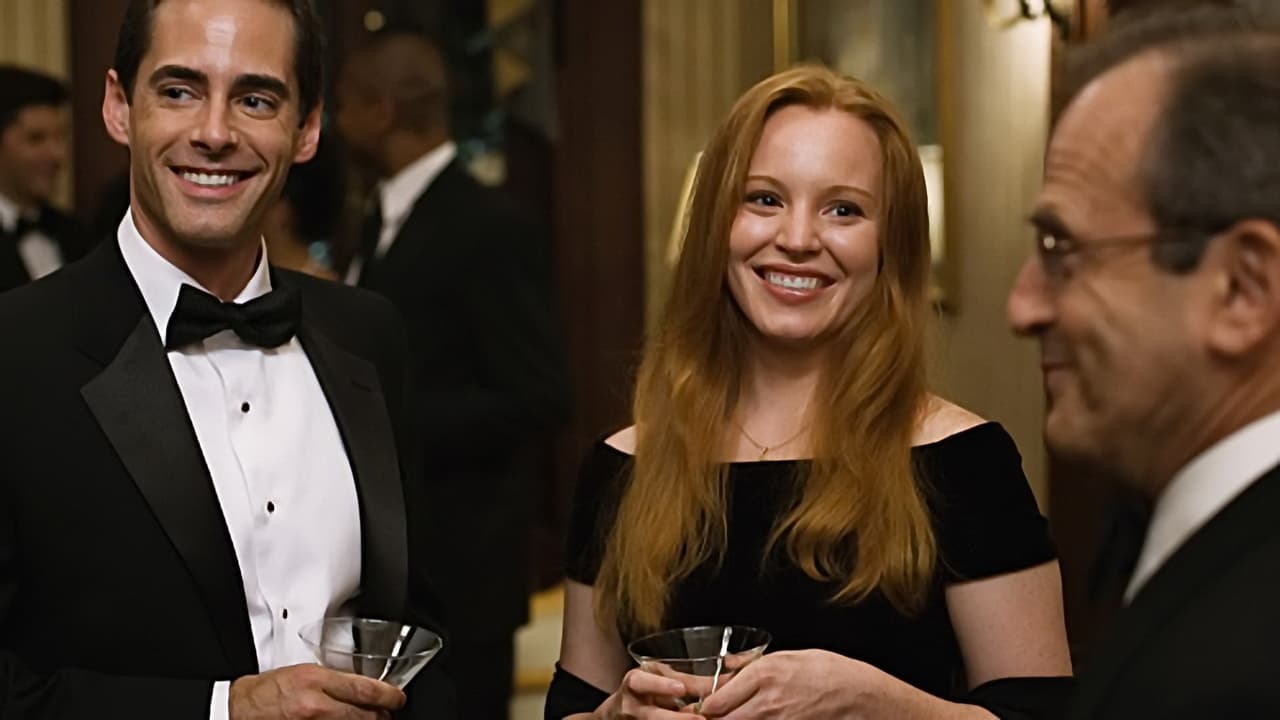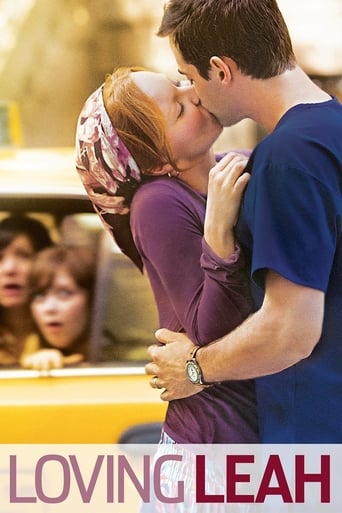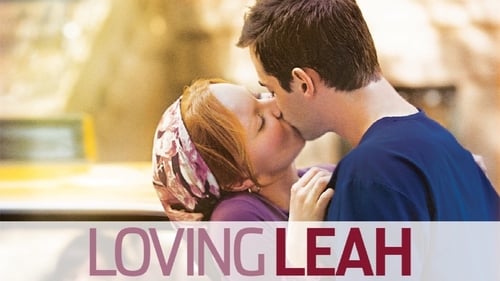



Why so much hype?
This is one of the few movies I've ever seen where the whole audience broke into spontaneous, loud applause a third of the way in.
View MoreThis is a dark and sometimes deeply uncomfortable drama
View More.Like the great film, it's made with a great deal of visible affection both in front of and behind the camera.
View MoreTo begin with, a real Orthodox Jewish woman, from an Orthodox Jewish community, would not bother making an oven kosher for use if she couldn't count on her own flatmate to try to keep it kosher, or even to know what's kosher and what isn't. She wouldn't go to a swimming pool where men are allowed in at the same time. She wouldn't even hold a conversation alone with a strange man on a rooftop. We're given to understand that the heroine of this film isn't the typical Orthodox Jewish woman anyway, because she likes to sneak out to the movies; but obviously the real reason for her atypical behavior is that without it, the plot of the film could never occur. Also misrepresented is Reform Judaism: a Reform rabbi explains soberly about the interaction between the living and those who have passed on, and although with enough effort you could probably find a Reform rabbi who would say almost anything, I think you would look hard before you found one who claimed that the dead soul goes through experiences, and harder yet before you found one who claimed to know exactly what those experiences are. All that said, what we have here is a well acted film albeit a doubly formulaic one-- formulaic both in the progress of its love story and in its reconciliation of ostensibly incompatible ways of life.
View MoreJake is a Washington, D.C., physician who has been accepted into a fellowship program. He is engaged to Carol, who he met at the hospital when they were having lunch at the same time. Carol is pretty and seems to work at the hospital, but I'm not sure what she does.Jake, who grew up Jewish but is no longer observant, dreams that he sees his brother Benjamin, a rabbi who he has not kept in touch with, telling him everything is now all right between them. They used to be close, as shown in flashbacks. Jake then finds out Benjamin is deceased.Jake goes to Brooklyn to attend the funeral. He finds out that he obligated by scripture (Deuteronomy 25:5) to marry Benjamin's widow Leah. Neither Jake nor Leah wants to do this, but a halizah ceremony is required to release Jake from his obligation. The words Jake is forced to say would require him to denounce his brother, which he can't do. So he goes through with a sham marriage and moves Leah into his very masculine Georgetown apartment, giving her the other bedroom. The two rarely see each other.Still, you can imagine how this makes Carol feel. Meanwhile, there is an additional complication: the mothers of Jake and Leah don't know the marriage is fake. So they have to go through the motions to keep up the charade.Leah wanted to leave Brooklyn anyway; she wants to go to college and investigates the possibility. Very devout and conservative, she also seeks out a place of worship. The one she finds is very different from the one in Brooklyn; instead of lots of men with black hats and beards, this temple has a female rabbi.The "marriage" appears unlikely to succeed. But wait: why does this movie have the title that it does? Maybe there is hope after all.The leading actors in this movie all do a good job. Lauren Ambrose is pleasant enough, and she is attractive but very plain, though she has beautiful hair (it's actually a wig). I especially liked Ricki Lake as the female rabbi who helps Leah find answers in a new community of faith. Susie Essman plays Leah's mother as abrasive (but in New York City, that's actually love) and intolerant (would an on screen Jewish mother be anything else?). Mercedes Ruehl does an especially fine job as Jake's mother.It is rare to see this much detail about the Jewish faith. Most movies and TV series show Jewish people as non-observant or, where they are faithful, we often don't see the details of what is required of them. The Brooklyn Jews in this movie are the most conservative Jews I have ever seen portrayed. And yet the female rabbi teaches Leah a lot about how all the requirements may not be necessary. Leah and Jake have a lot to teach each other as well.It was worthy of the name "Hallmark Hall of Fame".
View MoreI liked this movie a lot. I thought Lauren Ambrose was great in the role of Leah, an orthodox Jewish woman living in brooklyn who's husband dies leaving her a widow, and according to tradition, which I've NEVER heard of that she should be encouraged to marry the brother of her dead husband so she can have children and carry on the family name.The catch is that the living brother is extremely reformed in his ways while the deceased was extremely devout. They decide to marry, but both agree it's for convenience only and she moves to DC to live with him while he works on his medical fellowship.She's a free spirit and is happy for the opportunity to renew herself and wants to pursue a college degree against the wishes of her mother who believes a womans role is to serve her husband and children.What happens next is largely predictable, but it didn't bother me becuause the development of their relationship seemed to come very naturally and honestly.What struck me most about this movie was the charming childlike innocence of Leah as she was learning this whole new life. It was as if she was an amish person who moved to the big city and had to adapt to the pace and modern ways of life in addition to trying to maintain her OWN way of life through the way she decorated her room to her cooking traditional meals and taking on wifely duties....It was like she was trying to figure out how she could merge two worlds into one.It was a typical Hollywood ending no surprise. After all this was a hallmark hall of fame movie, but I really liked it.
View MoreIn the orthodox Jewish faith, when a man dies, the wife is supposed to marry his single brother, if there is any. In order to avoid such a marriage, there is a nasty ritual that the man and woman has to go through.This is the case in "Loving Leah." The film is somewhat unrealistic. An orthodox woman would not just take up with her brother-in-law as the film seems to suggest. When he calls her on Friday night, he should have realized that she'd never answer the phone and as for the sleeping arrangements made with the arrival of her mother, forget it, it doesn't happen like that. In addition, the prospective mother-in-law would never have a change to a more modern attitude in invoking the Lord's name for justification.All of the above being said, the movie is still a very interesting one and becomes extremely poignant at the end as the unveiling of the stone for the deceased draws near.The film tries to succeed in attempting to reconcile assimilation with accommodation here. Sociologists would have an absolute ball with this film.The film is still quite memorable and open to a lot of discussion. Some people may need to see it twice for a better understanding.
View More